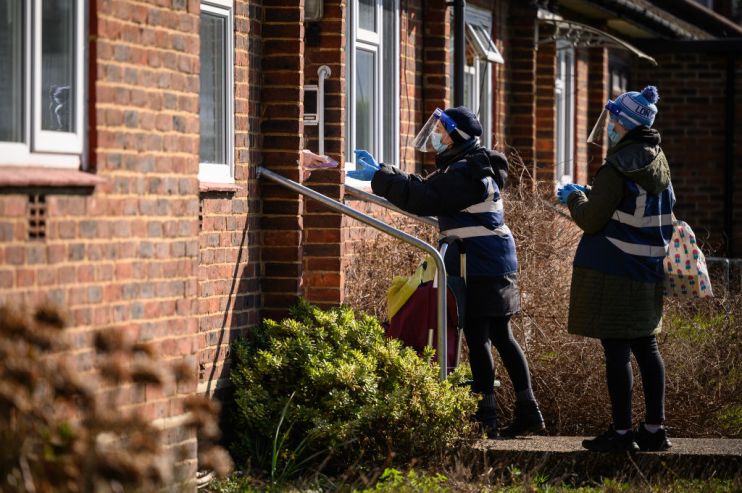Indian Covid mutation declared ‘variant of concern’ over fears of rapid spread

A coronavirus strain first detected in India has been declared a “variant of concern” over fears that it may be spreading more quickly than the dominant Kent strain.
Public Health England (PHE) said it had “moderate confidence” that the Indian mutation, known officially as B16172, spreads at least as quickly as the strain first found in Kent last year.
It means areas with cases of the mutation will likely be subjected to surge testing and other more stringent measures to curb transmission.
Cases of the variant have been found in schools, care homes and places of worship in London, the North West and the East Midlands, thought to be largely due to international travel.
There have been at least 48 clusters of the new variant, although overall numbers remain small. Health experts have insisted they “haven’t seen any hint” that any of the new Covid mutations evade available vaccines.
There are currently four variants of concern in Britain, including strains first identified in Kent, South Africa, Brazil, and a separate form of the B117 strain that includes the E484K mutation.
However, Dr Deepti Gurdasani, a clinical epidemiologist and senior lecturer at Queen Mary University of London, said that “at the current doubling rate [B16172] could easily become dominant in London by the end of May or early June”.
The B1617 variant has been linked to the enormous surge in infections in India, which now account for around half the global total.
Health secretary Matt Hancock earlier this week unveiled a fresh £30m investment in new labs that will assess the effectiveness of vaccines against so-called “variants of concern”, amid worries that progress with the UK vaccine rollout could be undermined by new mutations.
Professor Chris Whitty, the chief medical officer for England, is currently supervising trials of booster jabs especially modified to protect against new Covid variants.
Several vaccine companies including Pfizer, Astrazeneca and Moderna are currently developing “next generation” coronavirus jabs to tackle new Covid strains.
Moderna announced yesterday that its tweaked vaccine successfully neutralised the South Africa and Brazil mutations in laboratory trials.